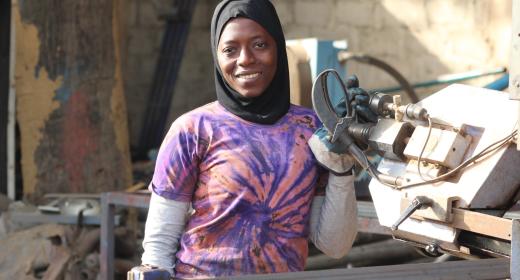Around 41.5 % of 18 to 35-year-olds in Gambia are unemployed. These figures come from a job market survey conducted in 2018. The main reason for this is that many of them lack the skills required for a well-paid job. The Gambian-German Advisory Centre for Jobs, Training and Reintegration (GGAC) and the Gambia Technical Training Institute (GTTI) are jointly offering them additional training opportunities to improve their prospects. These courses are aimed at unemployed young people and returnees who would like to increase their job opportunities. They take 9 months to complete. The GGAC and GTTI work closely with the private sector to be in a position to offer the trainees a one-month industrial apprenticeship. There are for instance courses on offer in solar technology, rural mechanics and civil engineering.
This programme enables the young people to gain professional qualifications and thus have a greater chance of finding a job. “The programme helps them to develop their creativity and the relevant skills. They learn to understand their sector and can then use this knowledge in practice”, says Wandifa Fatty, centre manager at the GTTI.







